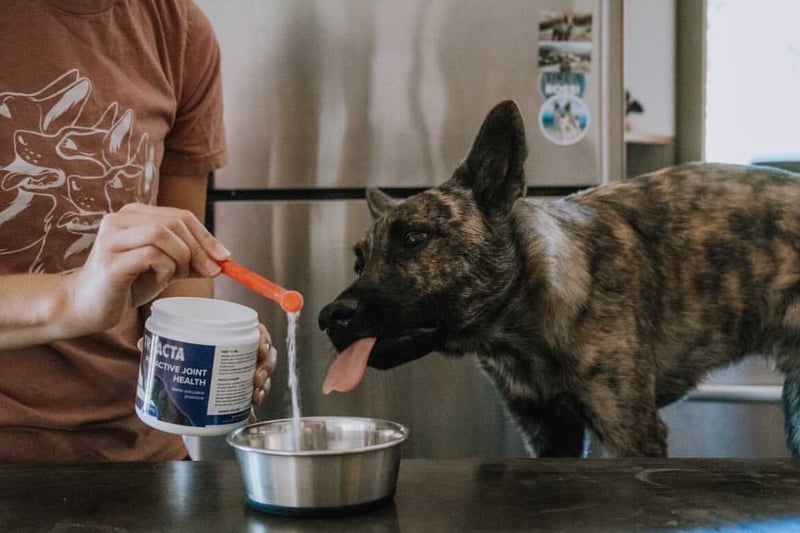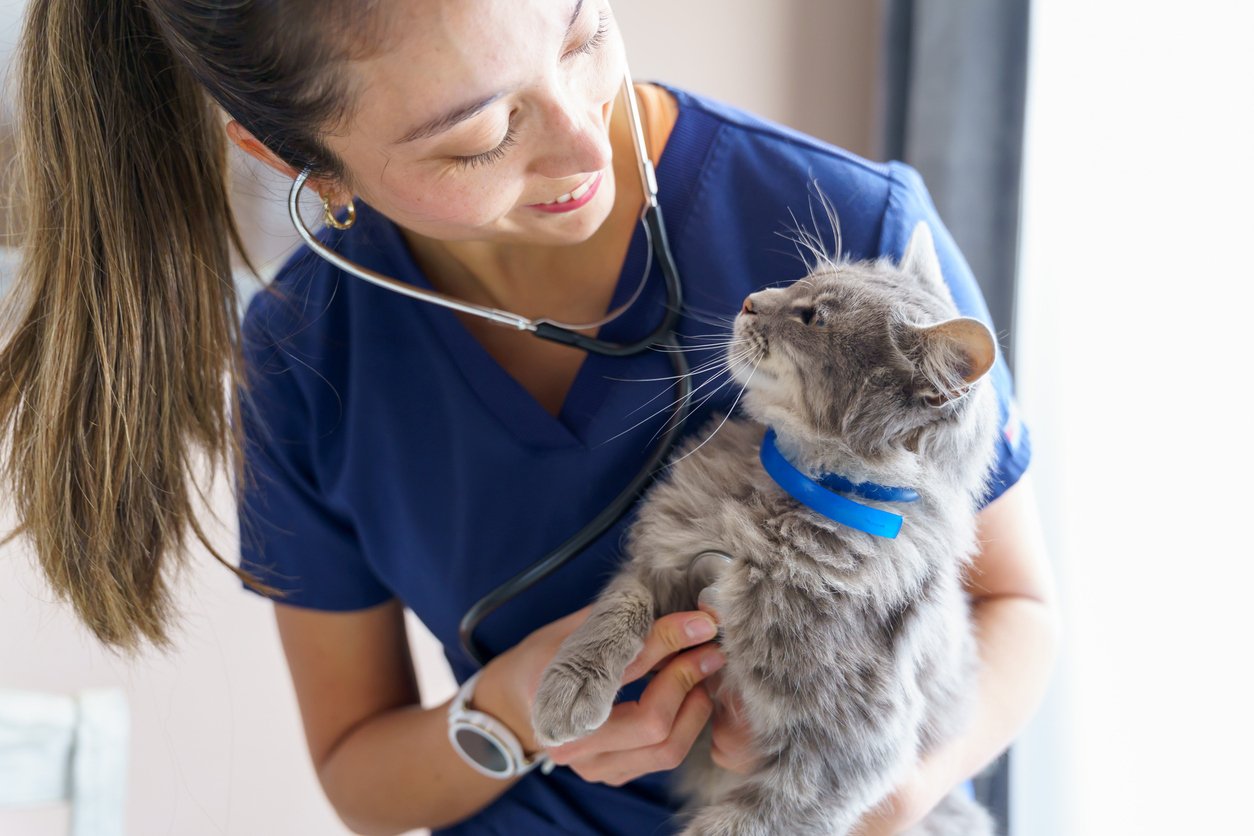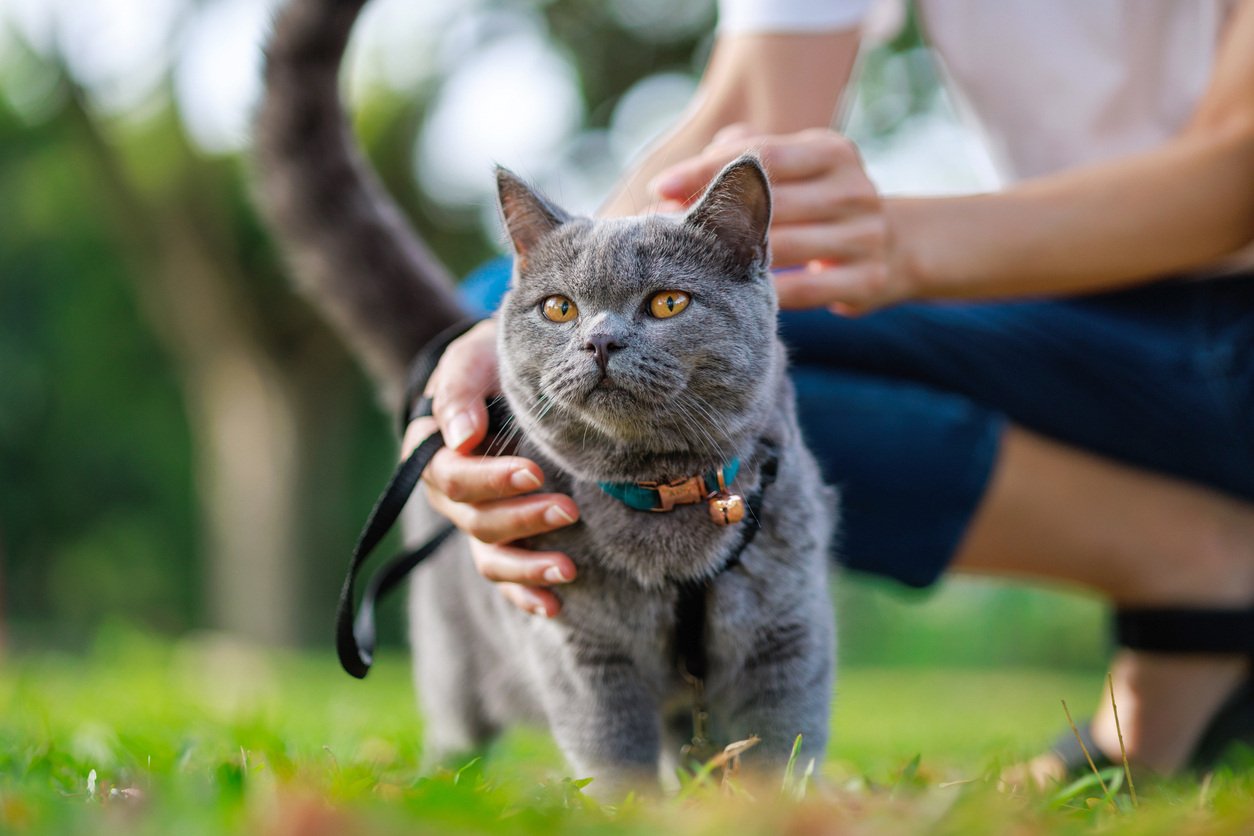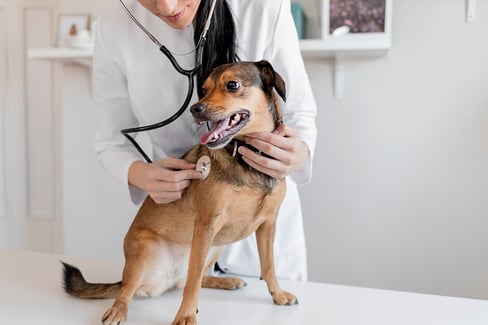Table of Contents
As pet owners, we want our fur babies to be healthy and happy all the time. But unfortunately, just like us, they can get sick. Sometimes, from the same things that make us sick, like certain bacteria, fungi, and viruses, but in other cases, our furry friends can get sick from things that don’t affect humans at all.
Being a savvy pet owner means being aware of common things in the world that might have a negative impact on your pet’s health, from food items to other plants and animals. Another important part of owning a pet and keeping them healthy is taking preventative measures regarding their health.
Preventative measures can include keeping your pet indoors, supervising them when they go outside, and ensuring that your backyard and home are free from toxic plants that might harm your pet if they decide to take a bite.
On the other hand, giving your pet joint supplements to help support their joint health as they age or feeding your pet high-quality pet food to ensure that their coat remains shiny and thick and that their digestive system is healthy are other things that pet owners do to prevent pet health issues.
Learning about common health issues with indoor pets is another way pet owners can help prevent their fur babies from unnecessarily getting sick. Once you know about pets' most common health issues, developing strategies for preventing your pet from experiencing them is easier.
In this article, we explore the most common pet health issues as well as preventative measures you can take to keep your furry friend in top condition.
Health Issues With Indoor Pets

While keeping pets indoors protects them from outdoor harm, it also presents a unique set of health challenges. The most common causes of health issues in indoor pets are genetics and lifestyle. There are a variety of factors that can contribute to your pets acquiring mild to severe health issues. Let’s name a few.
|
Health Issue |
Causes |
|
Obesity |
|
|
Periodontal Disease |
|
|
Allergies |
|
|
Infectious Diseases |
|
|
Cancer |
|
Obesity
A common health issue with indoor pets is obesity or unnecessary weight gain because of lack of mobility and exercise or overeating. Because of limited space, indoor pets don’t have as much opportunity to run, play, or engage in activities like chasing or hunting as outdoor animals do. This decreases the chance of your pet burning calories and maintaining a healthy weight.
Limited exercise can lead to your pet having a sedentary lifestyle, which is also because of a quieter environment. This provides more time for your pet to lounge or sleep, contributing to weight gain. Aside from restricted movements, overfeeding can also lead to obesity, especially when you give excessive snacks and treats.
Other common causes of obesity include:
- Old age—senior pets naturally become less active
- Genetics—certain breeds are predisposed to obesity, including Labrador Retrievers, Golden Retrievers, Pugs, and Beagles
- Certain diseases or ailments—diseases like hypothyroidism can cause weight gain due to an imbalance of hormones that affect your pet’s metabolism
Periodontal Disease
Periodontal disease and poor oral health are common in indoor pets, especially with aging cats. Did you know that when periodontal disease is left untreated, it can potentially decrease your feline’s life expectancy?
One of the main reasons indoor pets are prone to periodontal disease is a lack of natural chewing. Because these animals are almost always at home, they don’t have enough access to food that needs substantial chewing, which can help remove tartar and plaque.
Additionally, indoor pets tend to eat more moist and soft diets, which lack the abrasive action to remove plaque buildup adequately. Aging pets are also more prone to acquiring dental problems.
Untreated periodontal disease can lead to more advanced symptoms like dental decay, drooling, and tooth loss. It’s also a common precursor to kidney and heart diseases, affecting your pet’s overall health.
Allergies
Allergies are common in indoor pets because they are exposed to limited surroundings. Certain factors affect the risk of these animals getting allergies, including:
- The type of treats you give
- The atmosphere where your pets are living in
- Sudden weather changes.
Various allergens are common in indoor environments, including molds, dust mites, pollen, and household cleaning products. These allergens can trigger specific allergic reactions in your pets due to constant exposure.
Common signs of allergies include rashes, vomiting, weakness, and sudden changes in your pet’s behavior. When you notice the animal having these symptoms, consult your vet immediately.
Infectious Diseases
Certain infectious diseases are relatively common in cats or dogs but can be extremely detrimental to their health. For example, Feline Immunodeficiency Virus (FIV) is one of the most common infectious diseases that cats can get. FIV attacks the cat’s immune system, leaving the cat vulnerable to other infections. A cat with FIV may appear normal, but any sort of bacteria, virus, or fungi may cause them to get very sick, very quickly. Diagnosis can be determined with a blood test. Unfortunately, there is no treatment for the disease, but feeding the cat a balanced and nutritious diet and avoiding any raw foods (because they could be easily contaminated with bacteria) is the best treatment. Taking your FIV-infected kitty for regular health checkups is essential.
For dogs, many common infectious diseases occur in social settings with other dogs. These diseases include:
- Canine distemper—a respiratory and gastrointestinal disease that causes runny eyes, snotty nose, coughing, diarrhea, seizures, and paralysis.
- Canine Influenza—similar to people, a dog with the flu will have a cough, fever, and runny nose.
- Canine parvovirus (parvo)—affects the gastrointestinal system, causing bloody diarrhea, fever, and vomiting. The virus can survive for a long time on surfaces, including the clothing and hands of people.
- Parasites (fleas, ticks, mange)—various parasites can easily transmit from one dog to another, often simply through direct contact.
Cancer
Another common ailment that affects people as well as pets is Cancer. There are a wide range of cancers that cats and dogs can become afflicted with, just like people. Preventing cancer is difficult because there are so many possible reasons why a dog or cat can develop the disease.
Recommendations for minimizing the risk of cancer in your pet are often common sense, like feeding your pet a balanced diet of high-quality food, but there are other ways to prevent cancer in pets that may not be so obvious:
- Spaying cats before their first heat cycle significantly reduces the risk of mammary cancer. There is some evidence that this may also help with dogs, but the evidence is not as strong as with cats.
- Reducing exposure to chemicals in the environment and at home is also essential. Second-hand smoke from cigarettes, pesticides, and herbicides are known to be causes of cancer in animals.
- Early detection is also key for helping to prevent cancer from developing or treating it quickly. Taking your pet for regular visits to the vet for physical examinations is best.
Health Issues With Poorly Groomed Pets
|
Health Issue |
Effect |
|
Matted Fur |
|
|
Skin Infection |
|
|
Ear Infection |
|
|
Respiratory Issues |
|
Regularly grooming your pets is essential not only for the animal but for your family as well. You don’t want your dirty furbaby jumping and sitting on your new bedsheets, do you? Moreover, proper pet grooming can prevent shedding and pests like ticks and fleas from accumulating in your room.
There are some health issues with poorly groomed pets that can occur, affecting their overall quality of life. The most common ones are listed below.
Matted Fur
Your pets can experience matted fur when their coats’ hair starts to tangle, causing discomfort and skin irritation. This results in carpets and other matted materials from pulling on the animal’s skin, which can also be a potential breeding ground for parasites like ticks and fleas.
Matted fur causes skin irritation because of constant pulling and pressure. When not immediately addressed, it can lead to skin sores, which can cause more severe skin issues.
Moreover, let’s not forget that fur is your pet’s insulation to help the animal regulate its body temperature. Having matted hair prevents this insulation, leading to overheating during hot weather and failing to provide adequate warmth during colder months.
Matted fur also creates a warm and moist environment, a breeding ground for bacteria and fungi. This increases the risk of skin infections, which can be very painful and sometimes require a vet consultation.
Skin Infections
Skin infections are common pet health issues encountered by poorly groomed pets. These skin problems include dermatitis and hot spots. Dermatitis refers to skin inflammation, which can be caused by contact with irritants, allergies, and infection. Poorly groomed pets are more prone to a build-up of these irritants, increasing the animals’ exposure to dermatitis.
On the other hand, hot spots are your pets’ moist, red, painful, and inflamed skin areas. Poor grooming can lead to scratching, licking, and itching, irritating specific skin areas, and developing hot spots.
Dry skin is also a common skin infection in dogs, caused by dirt in the environment, the weather, and allergies.
Ear Infections
Poorly groomed pets tend to grow long and floppy ears. You must know that having long hair around the ears also increases the chance of infections. The reason? You cannot correctly clean inside the ears because too much long hair surrounds them.
Moreover, long and floppy ears are more prone to dirt and wax accumulation, creating an environment favorable to fungal and bacterial growth.
Respiratory Issues
Poorly groomed pets, especially cats, are also prone to respiratory issues because of the hairballs that form on their fur. Hairballs can easily be ingested by the animal, causing respiratory and even gastrointestinal problems when they accumulate in your pet’s digestive system.
Respiratory issues can also be caused by the buildup of the following in your pet’s fur:
- Mold spores
- Dust
- Pollen
- Other allergens
Pets moving around or grooming themselves can stir up these allergens, causing them to inhale these external factors and lead to respiratory problems. The issue becomes even more severe for animals with sensitivities or allergies.
Poorly groomed pets can carry more debris and dirt into your home, making the air dirty. Aside from affecting the animal’s respiratory health, the dirt and debris can also affect you and your household members.
Health Issues Where Pets Can Improve

Pet health issues are inevitable, even when you have done everything to provide for your pets’ needs and attention. Fortunately, various conditions can improve through proper vet consultation, discipline, and utmost love and care.
Dental Issues
Even though dental issues are common in pets, they can quickly improve and resolve with regular dental care. Otherwise, food and bacteria become plaque, which hardens to become tartar. This leads to gum inflammation, gingivitis, and, in severe cases, periodontitis.
Dental problems can quickly improve by providing your pets with dental treats and water. Aside from the proper brushing routine, your pets can also have yearly dental cleanings to ensure their oral health is in tip-top shape.
Obesity
Besides that certain large dog breeds are more prone to obesity, this health issue is generally caused by your pet’s lifestyle and diet. Being obese and overweight can improve by switching what your pet is eating to a more balanced diet with the proper nutrition.
Moreover, obesity can be improved by reducing the treats you give your furry companions. Or better yet, switch to natural and organic alternatives, which are more nutrient-dense.
Arthritis
Yes, your pets can also experience joint problems like arthritis. Common causes of cat or dog arthritis include obesity, limited movement, and genetics. Aside from improving your pet’s diet and lifestyle, you can also improve this health issue by providing joint supplements. These supplements provide the elements your pet needs to improve mobility, overall range of motion, and flexibility.
TRI-ACTA is a great preventative joint supplement that you can feed your pet to maintain their joint health as they age. It contains two types of glucosamine; sulfate and HCl:
- Glucosamine sulfate provides sulfur to your pet’s joints, which is an essential component of overall joint health. Glucosamine HCl is a highly bioavailable form of glucosamine, meaning your pet’s body can benefit faster.
- These glucosamines are combined with Chondroitin, which helps prevent cartilage degradation and supports repair.
- Methylsulfonylmethane (MSM) is a natural anti-inflammatory that reduces pain, swelling, and redness.
If your pet needs a bit more oomph when it comes to joint health, TRI-ACTA H.A. is our extra-strength version that adds hyaluronic acid. This key ingredient increases the viscosity of the synovial fluid in your pet’s joints, allowing for easier and more pain-free movement.
[product-callouts-1]
Parasitic Infections
Your pets, even when staying indoors, are prone to parasitic infections when the environment permits the growth of these pests. Mild parasitic infections can improve with regular vet consultation, proper medication, and rest.
Most Common Health Issues of Pets
We’ve already established that pets, even when they stay safe inside your dear home, can experience mild to severe health conditions. The most common health issues include obesity, arthritis or any joint problem, dental issues, cataracts, ear infections, digestive problems, and more. Let’s break them down below.
Cataracts
Cataract is a common health issue in older dogs and cats that prevents light from reaching their retina, causing vision impairment. This eye condition can develop rapidly or slowly, leading to blindness in severe cases.
Common symptoms your pet may be experiencing signs of cataracts include:
- Blue, grey, or white area in the center of your pet’s eye
- Behavioral changes
Cataracts can also be caused by trauma to the eyes or genetics. Moreover, it can also appear in newborn dogs in rare cases.
Mobility and Joint Problems
Mobility and other joint problems are common in senior and obese pets. When untreated, these health conditions can lead to chronic pain and, eventually, permanent joint damage. The joints most commonly affected include shoulders, hips, elbows, and knees.
Pets experiencing these health problems are generally slower to move and get onto their feet, especially during the cold weather or in the morning. You might also observe they are less active than before. Pain and discomfort aren’t apparent and can only be noticed when the problem becomes chronic.
[product-callouts-2]
Dental Issues
Dental problems are also common among pets, with the American Veterinary Dental College confirming periodontal disease as the most popular oral health issue among dogs and cats. Like humans, your pet’s oral health is important because the animal mainly uses his mouth to eat, swallow, breathe, and more.
One reason fur parents don’t recognize dental issues immediately is that they often don’t show signs other than bad breath. However, the most common symptoms of your pet having a dental problem include the following:
- Bad breath
- Teeth discoloration
- Excessive drooling
- Difficulty eating
- Decreased appetite
- Inflamed and bleeding gums
- Grinding teeth
Plaque is also the number one cause of pets developing gum disease, which can harden to form tartar when not brushed thoroughly for a day or two. Tartar is a yellowish-to-brownish substance that becomes calculus, which is even harder to remove.
Without proper attention, plaque and calculus can lead to severe gum disease and, ultimately, to tooth loss. When you notice your pet having bleeding or swollen gums, seek a vet consultation immediately.
Tooth fractures are also common in dogs because they love biting, chewing, and grinding on hard objects, including antlers, bones, and other hard plastic materials. Aside from the type of object, its size also matters. Dogs chewing on huge objects can lead to a slab fracture when the chew line and the animal’s tooth separate.
Digestive Problems
Digestive problems are one of the most common health issues of pets, especially those that don’t move as much but overeat. Diet is one of the critical factors of gut issues, which includes the following:
- Sudden dietary changes
- Providing low-quality commercial pet treats or food
- Feeding human food
Moreover, you must also be aware of any food allergy or sensitivity your pet has to avoid gastrointestinal problems. Common allergens include grains, beef, dairy, and chicken. Pets with sedentary lifestyles also tend to overeat or eat food too quickly. This can lead to diarrhea, indigestion, and vomiting.
Age is also an issue. An animal’s digestive system becomes less efficient as they age, which makes them more susceptible to digestive problems.
Parasitic Infections
Parasitic infections commonly occur when your home is infiltrated with fleas and ticks. Fleas can jump from one pet to another and land on a human. Your pets can pick up these infections from another infested animal.
One of the signs your pet might have a parasitic infection is when you observe him experiencing severe itching, even when it’s only a single flea. Other signs include licking, scratching, and pawing of the bite to relieve the itching. When this persists, it can lead to infection, inflammation, and hair loss in severe cases.
In North America, there are at least 15 different species of ticks that could be encountered by your pet. Among these different species, there are three that stand out as causing the most issues. The Rocky Mountain Wood Tick, American Dog Tick, and Brown Deer Tick can carry Rock Mountain Spotted Fever, a bacterial disease that causes fever, headache, vomiting, diarrhea, and other serious symptoms. Although this disease can be treated, it’s important that your pet receives care as soon as possible after a tick is found, otherwise, permanent complications that affect the kidneys and brain can occur. This disease can also spread to people.
Another important disease that’s spread by ticks, primarily the Deer Tick, is Lyme disease. This disease is caused by a type of bacteria called Borrelia burgdorferi, which is spread through infected ticks. Once the tick bites and the bacteria enter your pet’s bloodstream, the organism responsible for Lyme disease can easily travel to different parts of your pet’s body, typically affecting their joints and kidneys the most. Deer ticks can primarily be found in the midwestern United States but also in Canada, mainly in Ontario.
How to Reduce Pet Health Issues

Yes, pet health issues are totally preventable when you know what to do. Practicing and maintaining health habits is one of the best ways to protect your pets and prevent them from encountering health issues. Moreover, remember that properly caring for them means responsible pet ownership.
Practice these pet care tips to reduce health issues and keep your fur babies in perfect condition while growing old.
1. Practice Regular Vet Visits
Like humans who need regular check-ups, you must also be responsible for visiting the vet regularly. Animals must get a checkup at least once a year, including complete vaccination. Vet consultations are even more critical as your pet starts aging.
Regular vet visits also practice preventive care, which can help identify and address potential health issues before they become more serious. Vaccinations, parasite control, and dental care are preventive measures that can be taken during these visits.
Regular vet visits are also crucial for the early detection of health issues. It’s common for pets to have diseases that only show symptoms in advanced stages. Your vet can run diagnostic tests and conduct physical examinations to detect early-stage illnesses and identify the best possible treatment.
Moreover, your vet can offer advice on your pet's diet and nutritional needs, ensuring they get the proper nutrients for their age, breed, and health status.
2. Maintain A Balanced Nutrition and Healthy Weight
Maintaining balanced nutrition and a healthy weight for your pet is crucial for preventing and reducing obesity, joint problems, digestive health, and respiratory function.
Obesity is a common pet health issue, which can lead to various problems like diabetes, arthritis, heart disease, and respiratory issues. Feeding your pet an appropriate amount of high-quality food and controlling their portions can help prevent obesity.
Additionally, excessive weight strains your pet's joints, especially in dogs and cats. Maintaining a healthy weight reduces the risk of developing joint problems and can alleviate symptoms in pets with joint issues.
Practicing a balanced diet with essential nutrients like omega-3 fatty acids can also promote healthy skin and a shiny coat. Poor nutrition can lead to skin problems and a dull, dry coat.
Ensuring your pet gets regular exercise can also contribute to a healthy weight. Keep your animal moving even with the limited space because it also helps boost his mental and social health.
As fur parents, it’s your responsibility to provide high-quality pet food and treats with natural ingredients appropriate for your pet’s size, age, and activity level. You must also regularly monitor your pet’s body condition and switch up their diet and exercises when necessary.
Of course, regular vet consultations are essential when switching your pet’s diet to ensure the animal still gets the nutrients it needs.
3. Keep Your House Clean
Keeping your house clean is essential for promoting your pet's health and well-being. A clean living environment can help reduce various pet health issues by minimizing exposure to hazards and pathogens.
Regular cleaning can help reduce allergens like dust mites, pollen, and pet dander in your home, which is even more important when your pet has allergies. Reducing allergen exposure can alleviate allergy symptoms in both humans and pets.
A clean home is less likely to harbor parasites like fleas, ticks, and mites. Regular cleaning and vacuuming can help remove these pests and their eggs, reducing the risk of infestations.
4. Consider Giving Supplements
Supplements can be extremely beneficial to your pet’s health, especially when combined with a healthy and balanced diet. For example, pets .Supplements can be extremely beneficial to your pet’s health, especially when combined with a health. who experience joint and muscle problems can be given a joint supplement that contains glucosamine, chondroitin, and MSM like . can be given a joint supplement that contains glucosamine, chondroitin, and MSM like TRI ACTA to provide increased joint support. for a complete boost.
[product-callouts-1]
Summary
Pet health issues include a wide range of conditions and concerns that affect the well-being of your furry companions. These issues can be related to physical health, behavior, and overall quality of life. Some common pet health issues include obesity, dental problems, allergies, parasitic infestations, infectious diseases, joint and mobility issues, and skin and coat conditions.
Regular veterinary care, a balanced diet, exercise, and a clean living environment are essential for preventing and addressing these health issues. When thinking of providing supplements, consider Integricare’s TRI ACTA H.A., an all-in-one supplement to boost your fur baby’s muscles and joints, providing more range of motion and improved mobility.
Purchase TRI-ACTA online today or learn where to buy at a store near you.
Newsletter Signup
Subscribe to our newsletter to receive the latest news and exclusive offers.
.jpg?height=2000&name=Cliick_Integricare-DISPLAY-REVISEDV2%20(1).jpg)
Proactive & Therapeutic Joint Supplements
When given daily, Integricare joint supplements recover bone and joint injuries faster and help prevent mobility injuries from happening in the first place.











